SDSU Courses taught by Dr. Kris Stewart
Upd 17Feb2026; This url https://stewart.sdsu.edu/SDSUcoursesTaught.html
return to Kris' Home Page
When hired Fall 1984 at SDSU, I was a numerical analyst, with PhD to be completed
soon.
Math 693a Advanced Numerical Analysis, Fall 1994; info
on course, intro & semester calendar of topics.
Text: Scientific Computing: An Introduction with Parallel Computing,
Gene Golub and James M. Ortega, Academic Press, 1993
Math 693b Advanced NA 2, Spr 1995 info
Math 541 Intro to Numerical Analysis, Fall 1993, info
course introduction and semester calendar to topicws.
Text: Numerical Methods for Mathematics, Science and Engineering, 2nd Edition,
John Mathews, Prentice-Hall
Math 542 Numerical Analysis 2 Spr 1994, info
Textbook: Scientific
Computing and Differential Equations: An Introduction to Numerical Methods
by Gene H. Golub and James M. Ortega, Academic Press, 1992
Matrix Computations
4thEd 780pgs
1997 marks the start of NPACI
pdf grant, NSF's refunding of
Supercomputer Centers, and creation SDSU's Ed Center on CSE, Computational Science & Engineering,
directed by Kris Stewart.
1998 Computer Science becomes separate department from Math Sciences & the
topic of numerical analysis stays with Math Dept. Her course, CS 575 Supercomputing
for the Sciences, goes with the CS Department.
Kris teaches standard CS courses, such as Compiler Construction, Data Structures and
Computers & Society.
Kris discovers new topic for research & teaching, 3D Game Programming, along with
follow-on NSF grant funding for EPIC, Engaging People in Cyberinfrastructure in 2005.
CS 524 Compiler Construction
info
Spring '08 course for computer science students who wish to learn how
this essential programming tool, the compiler, accomplishes its many,
varied tasks (efficiently). This is a course with a nicely balanced
focus on practice (code writing) and theory (recognizing and parsing
languages to translate between a higher level language and assembly
language). Your semester Programming Project
Our text book is the 2006 [Dragon Book 2nd Ed.].
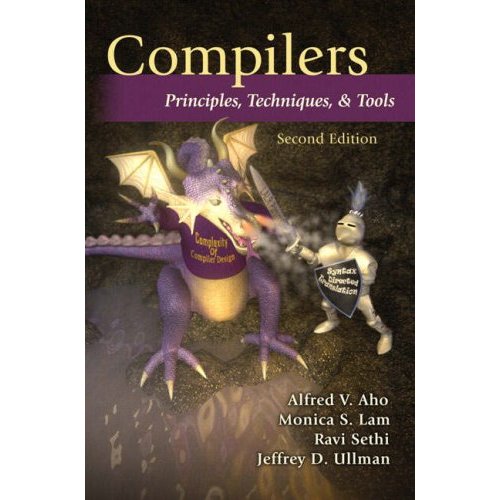
CS 310 Data Structures
info
Fall 2004 -
CS 310 is a fundamental, required upper division course in the Computer
Science major which builds on a student programming background in an
Object Oriented Programming language, Java, to formalize the
understanding of data structures and the algorithms that effectively
manipulate them on a computer.
Stewart taught CS 310 Data Structures over many semesters, including Fall 07.
This is one
of the fundamental courses for computer science majors, as well as for
majors from other departments who already have a reasonable background
in programming in Java 5. Our text book is Data Structures and
Abstractions wieh Java, 2nd Ed, by Carrano. There are significant
programming assignments along with lecture and discussion of the ideas
for effective creation and use of data structures, as well as consideration
of their efficiencies in the run-time environment.
CS 575 Supercomputing for the Sciences
info
Fall 2002 -
CS 575 is an interdisciplinary course to introduce students in the sciences,
engineering and other disciplines to the world of high performance computing using
campus computers and the supercomputers at the San Diego Supercomputer Center (SDSC).
Additional architectures may also be explored. The computing projects have a goal
to effectively use, by the end of the course, MPI on Rohan as well as MPI on the
IBM SP, Blue Horizon. Prerequisites: Programming background in C or Fortran 90.
Computational Science curriculum development
info
stewart.sdsu.edu/infolab
[Info Overload Lab, constantly evolving page of information,
with links]
CS 101 Information Technology and Society
-
SDSU Spr '02 course info - for general university student who want to become
familiar and competent with using computers and the computing resources
available, for free, for them on our campus.
Game Development Essentials, 3rd ed. by Jeannie Novak from Cengage Learning. Text I would use if I had not retired Spr2013.
CS 583 3d Game Programming
spr2013 info
using Microsoft XNA 4 game framework and text by Aaron Reed
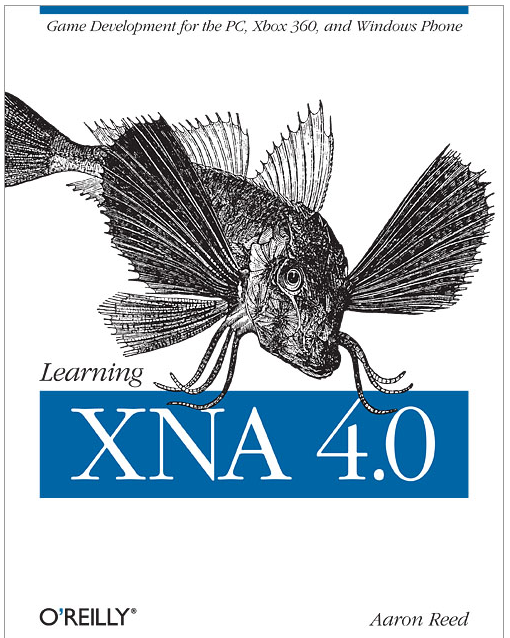
Using Windows 7 (I've been using Win8 for 9 months and love it), Visual Studio 2010 Pro and XNA 4 Game Studio [software installed in GMCS 408 and available for student download].
Lectures are from Kris Stewart in AH1112 LRS [Learning Research Studio]. We have Xbox 360s and PCs in GMCS 408 for students to test their multi-platform game development for PCs or Xbox360.
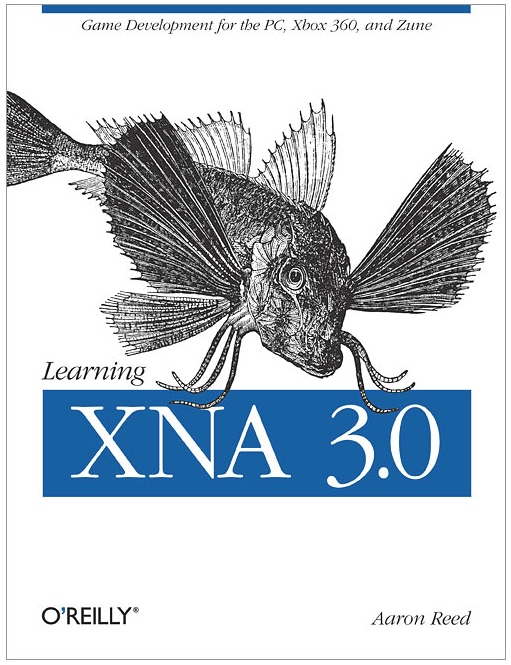 [ Spr 2010 ] CS 583 3D Game Programming - Course notes appear in Blackboard for Spr 2010 Semester.
[ Spr 2010 ] CS 583 3D Game Programming - Course notes appear in Blackboard for Spr 2010 Semester.
Have you seen Avatar?
great example of Hollywood and Gaming collaboration
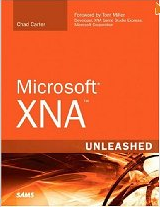 also a useful book
also a useful book
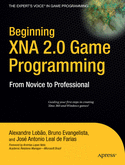 SDSU Spr '09 course text (CS 583 catalog)
3d Game Programming and Simulation
SDSU Spr '09 course text (CS 583 catalog)
3d Game Programming and Simulation
CS 100 Computational Thinking (3) Fall2012
info
Fall2012 Syllabus

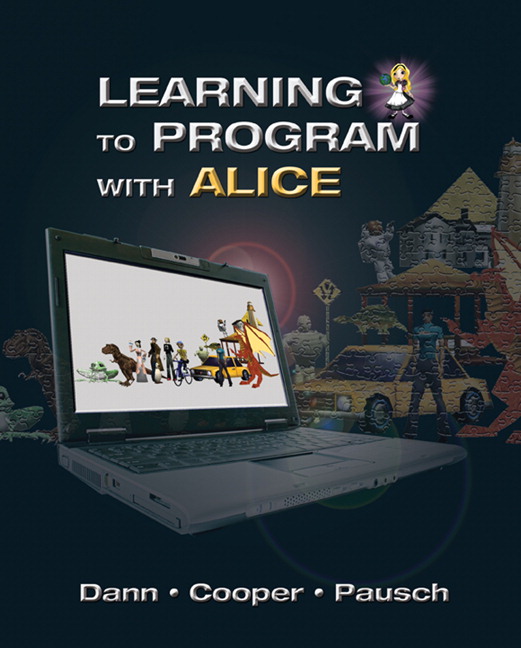 The required textbook is Learning to Program with Alice by Dawn, Cooper, Pausch; Prentice-Hall 3rd Edition (c) 2012
The required textbook is Learning to Program with Alice by Dawn, Cooper, Pausch; Prentice-Hall 3rd Edition (c) 2012
This course satisfies a General Education requirement under II.A.4 Mathematics/Quantitative Reasoning.
Prerequisite: Satisfaction of the Entry-Level Mathematics requirement.
Topics:
Capabilities and applications of computers.
Algorithmic problem-solving methods and computer programming.
Using computers to examine questions from other fields of study.
Practical and theoretical limits to computation.
Machine intelligence and heuristic problem solving.
Social and legal impact of computers.
CS 301 Computers and Society
info
A Gift of Fire: Social, Legal and Ethical Issues for Computing Technology (4th Edition) by Sara Baase is our textbook;
Review of 4th Edition ;
What's new in 4th edition?
This course deals with the impact of computers on us as individuals and on our society. The widespread use of computing technology has changed the way we work, play and interact with other people. These changes have created a flood of new social and legal issues that demand critical examination.
Course Objectives -
After successfully completing this course, you will:
- understand how computing and information systems give rise to social issues and ethical dilemmas
- be familiar with some of the issues you may face as a member of a complex technological society
- be able to discuss the benefits offered by computing technology in many different areas as well as the risks and problems associated these technologies
- understand some social, legal, philosophical, political, constitutional and economical issues related to computers and the historical background of these issues
- be able to explore the arguments on all sides of a controversial issue, and argue convincingly for the position you select
- have an increased awareness of current social and legal developments related to computers
CS440 Social and Ethical Issues in Computing Fall 2012
info
In Fall 2012 and Fall 2010, Stewart presented this innovative coarse allowing students to
investigate, discuss and explore the deeper possibilities that a career
in Computer Science may present for them. Our textbook is
Gift of Fire by Baase and the curriculum is available by the first
meeting of class. Once of the highlights in 2012 was the appearance of IBM's computer,
Watson, on the TV show Jeopardy! A live demonstration of AI, artificial intelligence
https://www.youtube.com/watch?v=P18EdAKuC1U online;
collection
CS 490 Senior Seminar (for Computer Science majors) each semester
info
University seminar is a one unit pass/fail course designed to acclimate
students to university life. By the end of
the semester, you should "know the ropes" of the university, have been exposed
to strategies for college success, and started to build a peer group.
Sample Presentation;
return to Kris' Home Page



 [ Spr 2010 ] CS 583 3D Game Programming - Course notes appear in Blackboard for Spr 2010 Semester.
[ Spr 2010 ] CS 583 3D Game Programming - Course notes appear in Blackboard for Spr 2010 Semester. also a useful book
also a useful book
 SDSU Spr '09 course text (CS 583 catalog)
3d Game Programming and Simulation
SDSU Spr '09 course text (CS 583 catalog)
3d Game Programming and Simulation
 The required textbook is Learning to Program with Alice by Dawn, Cooper, Pausch; Prentice-Hall 3rd Edition (c) 2012
The required textbook is Learning to Program with Alice by Dawn, Cooper, Pausch; Prentice-Hall 3rd Edition (c) 2012